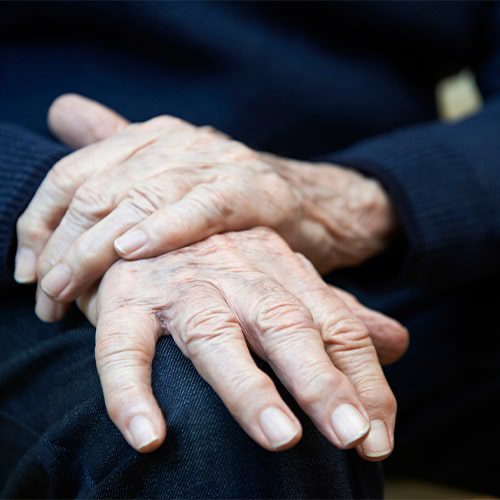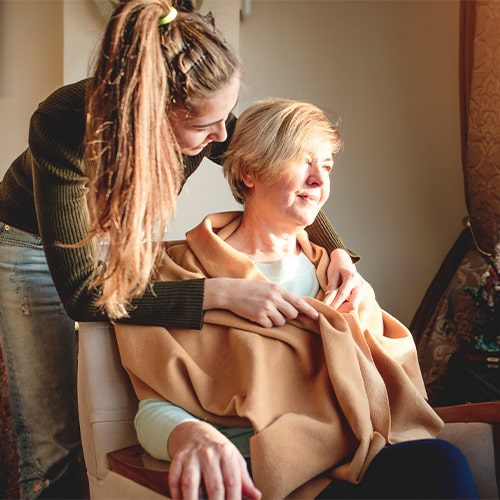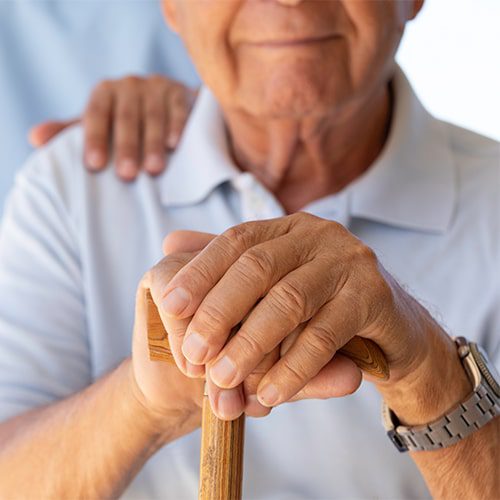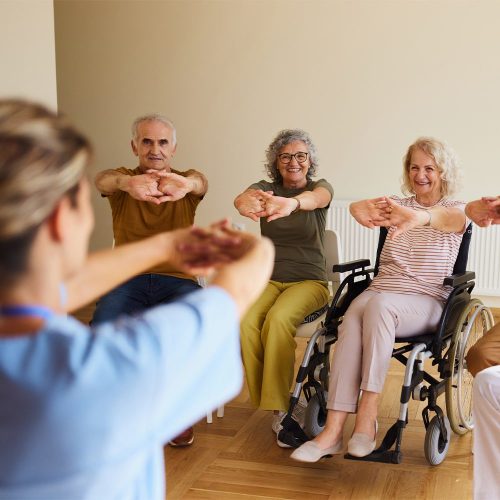Parkinson’s Disease: What It Is And What Are The Symptoms

It is estimated that around 153,000 people are living with Parkinson’s in the UK, and this is expected to increase over the next year or so. With two people receiving a diagnosis every two hours, more and more people are looking to understand what Parkinson’s disease is and its symptoms.
Parkinson’s disease, often shortened to Parkinson’s, is a neurological condition that is commonly associated with ageing. While it is a well-known disease, there is a lack of knowledge surrounding it – most people think it causes shaking, and that’s about it. But the reality is that it impacts the daily lives of those diagnosed.
However, with the right care, it doesn’t have to reduce the quality of life.
At LuxuryCare, we pride ourselves on providing more than care, putting an emphasis on enhancing the quality of life of our residents with engaging activities, home-cooked meals and as much independence as possible. Our team are experts at caring for those with Parkinson’s and adapting their care to your loved ones’ unique needs.
In this blog, we share everything you need to know about the neurological condition and the care they can receive.
What Is Parkinson's Disease?
Before diving in, let’s clear up what Parkinson’s is. We touched on the basics in a recent blog on neurological conditions in adults, but we want to dig a little deeper here.
Parkinson’s disease is a progressive neurological disease that affects your loved one’s movement, memory and cognitive function.
It is often thought to be a form of dementia, as many living with the disease experience dementia symptoms.
So what causes the disease?
It occurs when nerve cells in the brain stop producing enough dopamine. This is the chemical that controls movement – so you can see how the science behind it leads to the common symptom of shaking and movement difficulties.
The exact cause of this drop in dopamine is unknown, but it is believed to be linked to genetics and environmental impacts.
Unfortunately, there is no cure for this disease at the moment, so treatment centres around palliative care, reducing symptoms so your loved one can stay as independent as possible.


Early Symptoms of Parkinson's Disease
As we mentioned above, Parkinson’s is a progressive disease, meaning the symptoms worsen over time. While everyone experiences the disease differently, in order to be able to provide the right level of care at the right time, it has been categorised into several stages.
The first stage is early symptoms. This is when your loved one starts showing signs of the disease but is still able to complete tasks and remain relatively independent.
It isn’t uncommon for the symptoms in this stage to be mistaken for ageing because they can be subtle and easily hidden.
Early Parkinson’s symptoms include:
- Tremors in hands or fingers
- Slowness of movement (bradykinesia)
- Stiffness in muscles
- Small handwriting or difficulty writing
- Forgetting recent conversations or misplacing items (memory problems)
- Changes in mood or depression
Middle Stage Symptoms
Over time, the symptoms will become more noticeable.
Key symptoms you will likely start noticing include:
- Difficulty walking or balance problems
- Increased forgetfulness or confusion about time and place
- Speech changes (soft or slurred speech)
- Difficulty with everyday tasks such as dressing or cooking
- Hallucinations or delusions
- Sleep disturbances
It is common for more care and assistance to be needed at this stage, and while there will be medication involved in the treatment plan, residential care is often enough care to support your loved one to remain as independent as possible while receiving the assistance they need.
Later Stage Symptoms
The final stage of the disease impacts both physical and mental health.
Symptoms include:
- Severe memory loss and confusion (dementia symptoms)
- Limited mobility and risk of falls
- Difficulty swallowing (dysphagia)
- Mood changes, including anxiety and aggression
- Need for full-time care and support
At this stage, it is likely that your loved one will need more medical assistance and specialised dementia or neurological care.
How Bespoke Care Supports People with Parkinson's Disease
Because everyone experiences the symptoms differently, and the speed of progression varies from person to person, bespoke care plans are essential.
By creating a custom care plan that is flexible and adaptable, your loved one will receive the right level of care. What do we mean by this? And why is this important?
Just because your loved one has a diagnosis doesn’t mean they can’t do things. The ability to do things by ourselves is so closely linked to our identity and self-worth that preventing them from getting on with their life after a diagnosis can make things worse.
Tailored care plans allow us to provide assistance where they need help but remain out of the way when they can do things on their own. This helps their mental health and also encourages them to maintain movement and mental abilities, which can often slow the progression down.
These documents are regularly reviewed so they can adapt as your loved one’s disease changes. So, care levels can increase without overstepping.


Bespoke Parkinson’s Care at LuxuryCare
There are different care options for your loved one living with Parkinson’s. While care at home can be beneficial for some, moving into a care home with dementia specialist care and neurological specialist care can easily provide the perfect level of care as their symptoms worsen while enhancing their quality of life in several ways.
At LuxuryCare, all of our care homes across Poole and Bournemouth are dementia specialist residential care homes. This means the staff are experts at delivering the right assistance without making your loved one feel unable or useless.
On top of this, Branksome Park is a specialist neurological care home offering nursing care for those who have more severe Parkinson’s.
Across all of our homes, we value the quality of life of our residents. This means our care goes beyond the physical care provided and extends to creating a fun, community atmosphere with plenty to do.
Our homes have an array of activities and day trips each week, all of which can be adapted to your loved one’s abilities. None of the residents are forced to take part, offering them independence and agency in their day-to-day lives.
Typical activities include:
- Arts and crafts
- Music therapy
- Gardening
- Animal therapy
- Singalongs
- Bingo and quizzes
Alongside this, we have freshly prepared meals throughout the day using fresh and local ingredients. Residents have a say on the menus for each week, so there is always a home favourite to look forward to.
Our in-house staff are highly experienced and understand how diet can impact health, so they are able to plan and adapt meals according to dietary requirements.
Finally, our facilities encourage a community feel, with residents able to relax in each other’s company in our communal areas, embrace a sunny day in our garden or simply have some peace and quiet in their room.
All our facilities are kept clean and tidy for residents and guests to enjoy at all times, thanks to our housekeeping and maintenance team.
If you are interested in our Parkinson’s care for your loved one, we recommend visiting one of our care homes. On your visit, you can experience the lifestyle at LuxuryCare, from seeing our facilities to taking part in the activities and enjoying a delicious meal with our residents.
Plus, you can chat with our staff and the home manager to learn more about our bespoke care plans, Parkinson’s and dementia care.
Book your visit with us today by calling 01202 037373 or completing our online contact form, and we will get back to you to arrange a suitable date and time.














